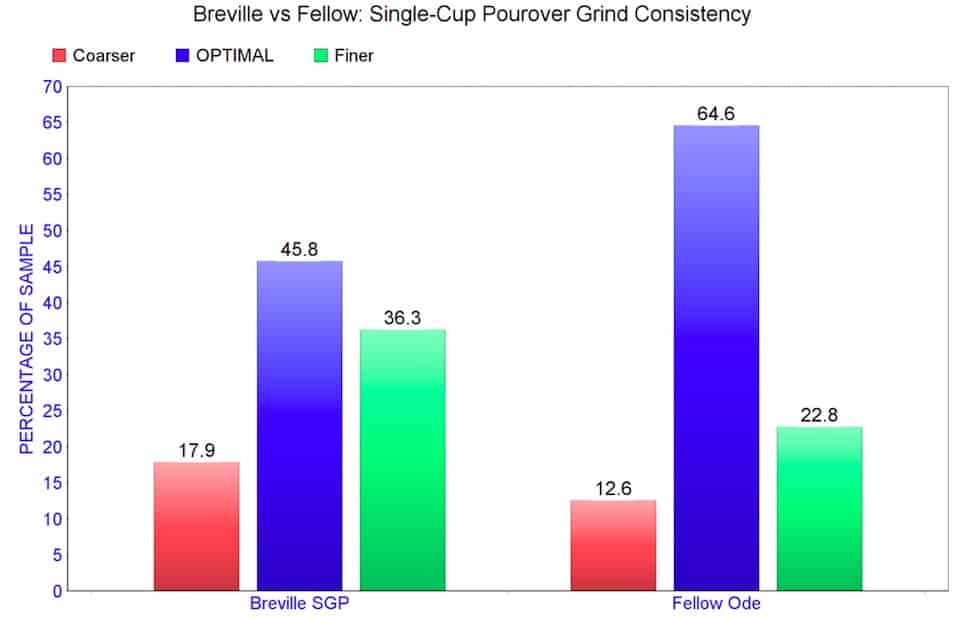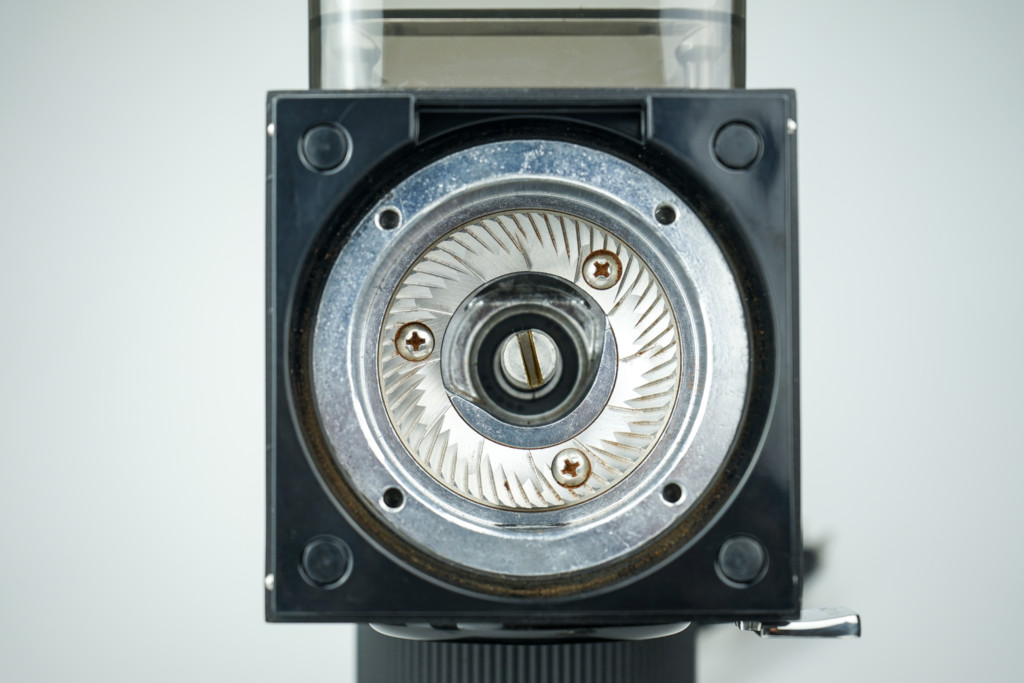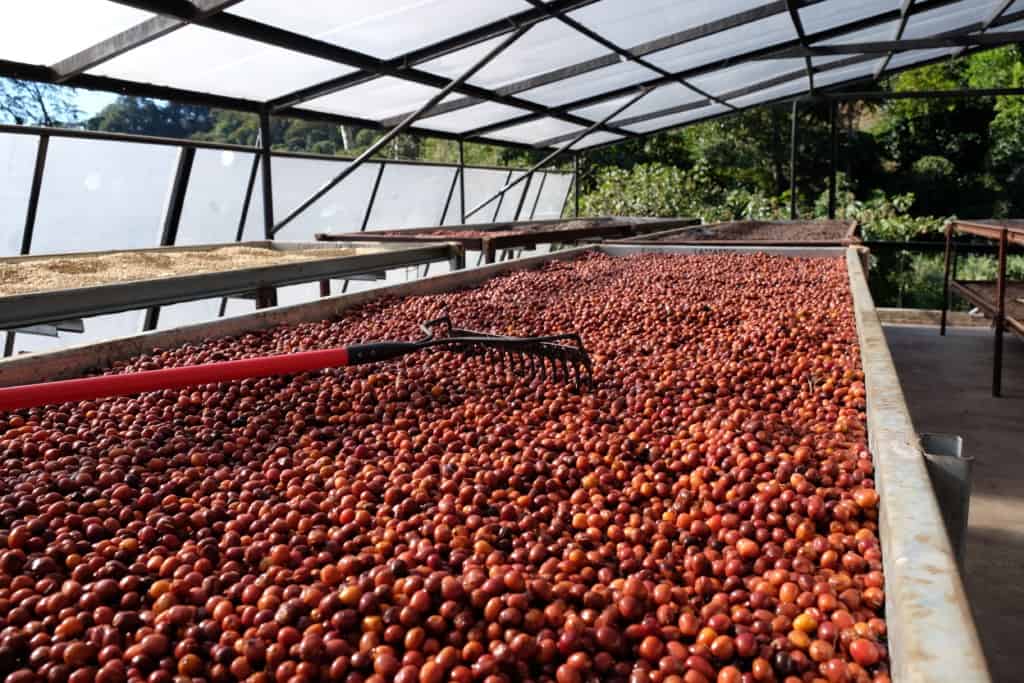Home kitchen appliances don’t usually enter the market wafting on hype. Yet, when it comes to an ambitious new product from the young and media-savvy California-based coffee equipment manufacturer Fellow, we’ve come to expect nothing less. The hype has been especially intense in the run-up to the debut of the Ode Brew Grinder, the company’s most complex product so far, and one for which the brand has made some lofty claims regarding features and performance.
Through its various media channels, Fellow has been promising a user-friendly machine of compact footprint, exceptional quietness, near-zero grounds retention, stylish appearance and trailblazing particle size consistency, designed specifically for single-dose, non-espresso brewing (which in itself puts the Ode in a category all its own). Yet as clever and good-humored as it is when ginning up the crowd, Fellow also has legitimately earned a reputation for making good on its promises.
To stoke excitement in the run-up to its latest reveal, Fellow undertook a sci-fi/conspiracy theory-themed P.R. campaign, enticing fans, bloggers and journalists to speculate about what sort of Sasquatch- or UFO-caliber mystery the hip brand was concocting in the shadows of its top-secret underground laboratories. This paid off when it pulled the curtain at last on the Ode Brew Grinder Kickstarter campaign, which sailed past its $200,000 funding goal in about 90 minutes and ultimately roped in over $1.2 million in pledges from roughly 5,000 backers. We put a pre-production review unit of the Ode Brew Grinder through its paces over the summer, and found that while it may not pull the sword entirely from the stone — alas, Bigfoot may still be out there somewhere — we were nevertheless very impressed with all that it does bring to the table. For the review, read on. For a little context, see our June 2020 report for reviews of four burr grinders currently competing with the new Fellow Ode.

The Fellow Ode Brew Grinder. Photo by Howard Bryman.
EQUIPMENT REVIEW: FELLOW ODE BREW GRINDER
OVERALL RATING: 9.5
Pros: The Ode’s outstanding grind consistency alone is reason enough to get on board, while this compact, stylish grinder’s groundbreaking additional features add welcome convenience to the creative challenge of precision single-dose brewing.
Cons: We’d prefer a bit more room at the finest end of the dial, and the Ode’s sensitive electronics are issue-prone, pending solutions Fellow says will appear in future production runs. For consumers considering buying their first burr grinder, the Ode may appear expensive. For more experienced users who are committed to optimizing their small-batch or single-cup brewing technique, it may seem, if not a bargain, certainly a very good value.
MSRP: $299.00
Reviewer’s Take:
The Ode Brew Grinder’s array of inventive features is impressive, although pulling off these innovations did not apparently distract its engineers from what really matters — the grind.
Particle Size Consistency: As with our previous grinder reviews we sent samples of coffee ground by the Ode to our friends at the Horiba Instruments particle science lab in Irvine, California, for particle size distribution analysis by laser diffraction.
When comparing the Ode’s best (most particle-size-consistent) grind to that of the peak performer in our previous round of grinder reviews (the Breville Smart Grinder Pro), the Ode sample demonstrated 6% better grind consistency. (For an explanation of how we evaluate grind consistency, click here.

A comparison of grind consistency test results for the four best-performing grinders recently reviewed by Coffee Review, based on laser particle size distribution analysis conducted by Horiba Instruments. Shown here are best performance results for each machine. For each, the blue column represents the percentage of the sample within a particle size range we identified as optimal; the red column the percentage coarser than optimal, and the green finer than optimal.
That excellence gap grows wider, however, when we abandon the “best vs. best” idea for a closer look at each machine’s performance in specific use scenarios. Keep in mind that the Ode is designed for precision non-espresso brewing, whereas the grind-consistency runner-up Breville Smart Grinder is designed for all brewing methods, with a particular focus on espresso. If we accept the Ode’s more limited focus, and disregard the Breville’s versatility, our laser diffraction results indicate that when grinding specifically for a single-cup pourover, the Ode actually grinds almost 20% more consistently than the Breville.

A comparison of results from laser particle size distribution analysis conducted by Horiba Instruments of coffee samples ground at settings we found appropriate for a single-cup Kalita Wave pourover brew. For each machine, the blue column represents the percentage of the sample within the particle size range we identified as optimal; the red column the percentage coarser than optimal, and the green finer than optimal.
High-Tech Motor: While its sturdy alignment and large, commercial-grade 64-millimeter flat burrs contribute to this success, part also has to do with what Fellow calls its Smart Speed PID motor that directly drives the burrs at a consistent speed despite variations in resistance as beans feed between them. Sensors in the motor perceive fluctuations in RPM due to the resistance as a load of beans enters and diminishes during grinding, triggering automatic adjustments in the power sent to the motor. The result is a consistent 1,400 RPM, without slowdown at first or acceleration at the end - variations in burr speed that, according to Fellow, promote inconsistency in particle size in other grinders.

The large, stationary 64mm flat burr inside the grind chamber of the Ode Brew Grinder. Photo by Howard Bryman.
While this innovation does apparently contribute to outstanding grind consistency, it is also the mechanism at play in another clever, though less foolproof, feature: auto-stop.
The Auto-Stop Feature: When all the beans have been ground, the motor automatically shuts off, so if you weigh or measure your beans before you grind, you are freed from fooling around with a timer in order to attain hands-free operation. It’s an excellent feature when it works, but there are occasions when this brainy motor can be caught off guard.
The more common of such occasions is when a few beans straggle behind in the hopper after the motor has automatically stopped. When reactivating the grinder just for those final few beans, the tiny amount left often won’t provide enough initial resistance to trigger the auto-stop mechanism, in which case you will have to stop the grinder manually.
A more serious glitch can occur if the Ode shares an outlet with another power-hungry appliance such as a toaster oven, blender or, in our case, a standing mixer. After plugging in, using and then unplugging a standing mixer next to the Ode, its auto-stop feature started failing consistently and the grinder would make an odd stuttering knocking sound until manually stopped.
Fellow engineers informed us that this failure was due to “intermittent noise in the electrical control system, often caused by other high voltage electronics or appliances on the same circuit.” The issue corrected itself after simply unplugging the grinder, letting it “reset” for a few seconds and then plugging it back in again. Fellow promised that a solution will be worked into future production runs, though it will also include a recommendation that users plug their Odes into dedicated circuits that are not shared with other high-voltage products.

A couple of flicks of this lever on the side of the Ode helps knock loose grounds left behind in the grinder due to static cling. Photo by Howard Bryman.
Retention and Usability: These are truly minor and preliminary glitches, though, in a package that otherwise makes good on virtually all its other promises. With its low profile and compact footprint, the Ode is tiny compared to other machines in its class. With an average noise output of 85 dB while grinding, this pygmy powerhouse is also substantially quieter than average.
Another convenience: The catch cup for the ground coffee centers easily and is securely held in place under the chute by magnets. This magnetic alignment is particularly handy considering the narrow clearance for the cup between base and chute. Grounds-funneling fins inside the catch cup also make pouring the grounds into even the narrowest of filters easy.
The huge grind adjustment knob is a pleasure to use, although we found ourselves wishing the Ode would go just a tad finer to provide even more flexibility in slowing down flow through the coffee bed when brewing a pour-over with very light-roasted beans.
Dose accuracy in our tests was dependable enough, as what came out of the Ode was generally within +/-0.2 grams of what we put in. When we emptied the machine for cleaning, we were only able to mine roughly 0.3 grams of retained ground coffee from its grind chamber and chute, which is practically nothing compared to other machines in its price range we have tested.
The Bottom Line: These ancillary but important perks are welcome icing on the cake of Ode’s grind consistency. The Ode may not be the most versatile grinder on the market given its dedication to single-dose, non-espresso brewing, and there may still be a wrinkle or two to iron out as the design matures, but for its grind quality, its striking good looks and other features, the Ode Brew Grinder has already set an impressive new standard.
Key Specifications:
Hopper Capacity: 80 grams (2.8 oz)
Dimensions: 9.4″x 4.2″x 9.5″
Weight: 4.5kg (10 pounds)
Burrs: 64mm stainless steel flat
Burr Speed: 1400 RPM
Grind Settings: 31
MSRP: $299.00
Manufacturer’s Website: www.fellowproducts.com
The post A High-Quality Grind, One Brew at a Time: The New Fellow Ode Brew Grinder appeared first on Coffee Review.



